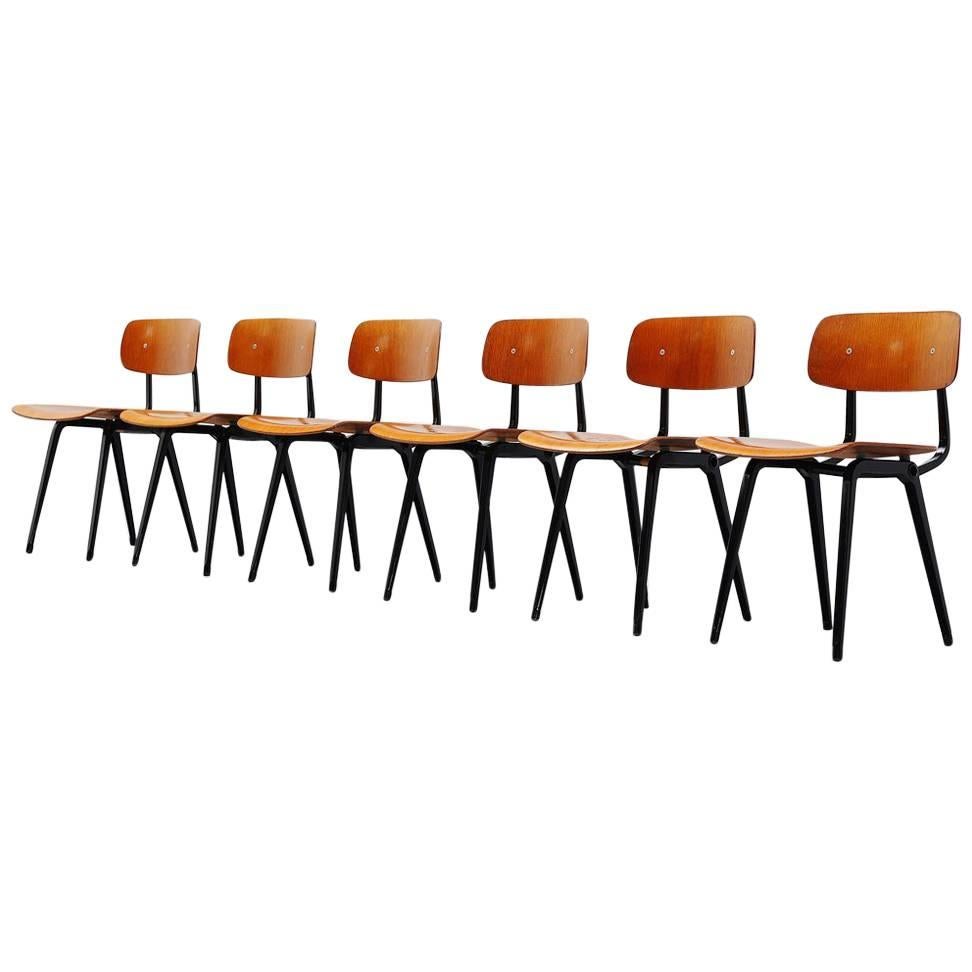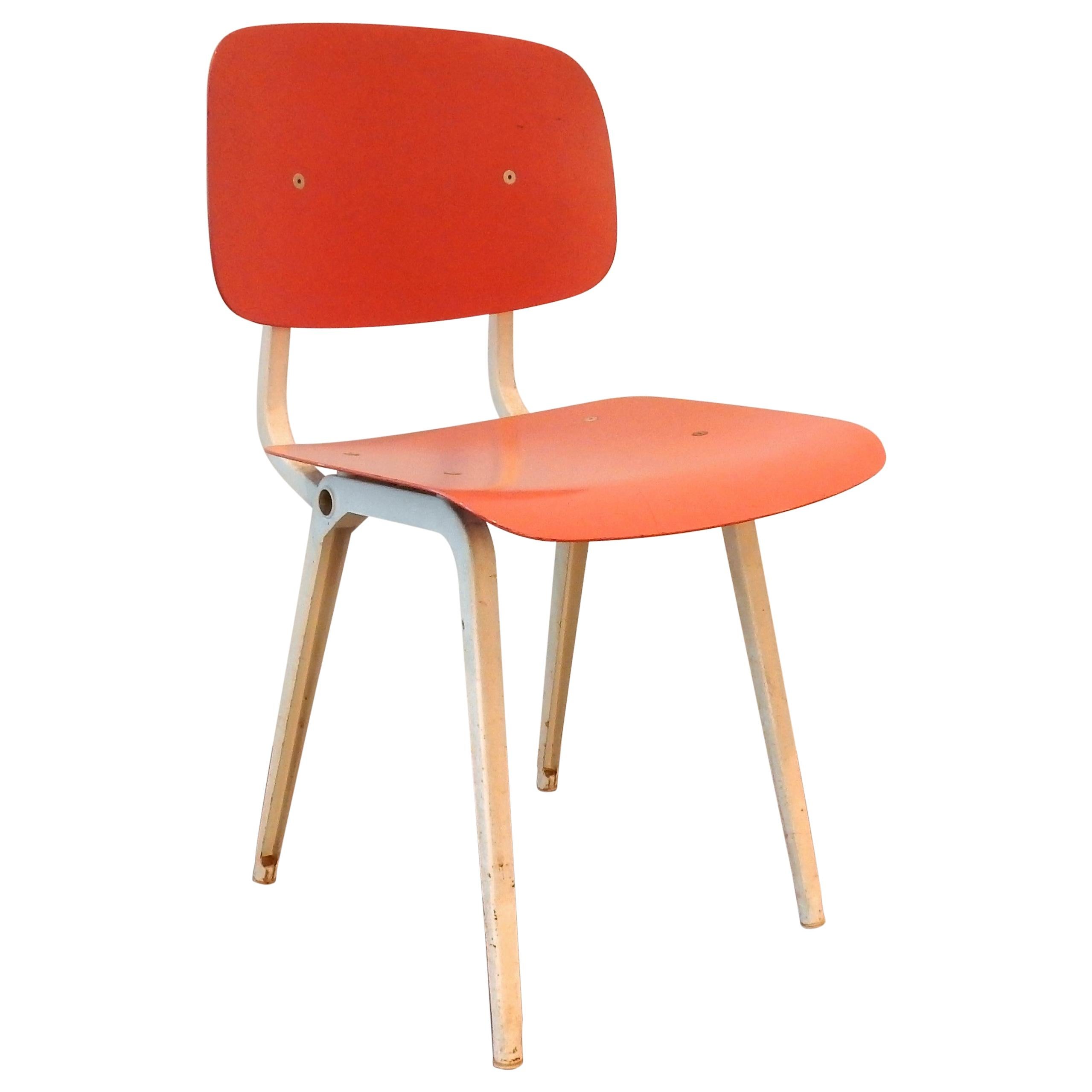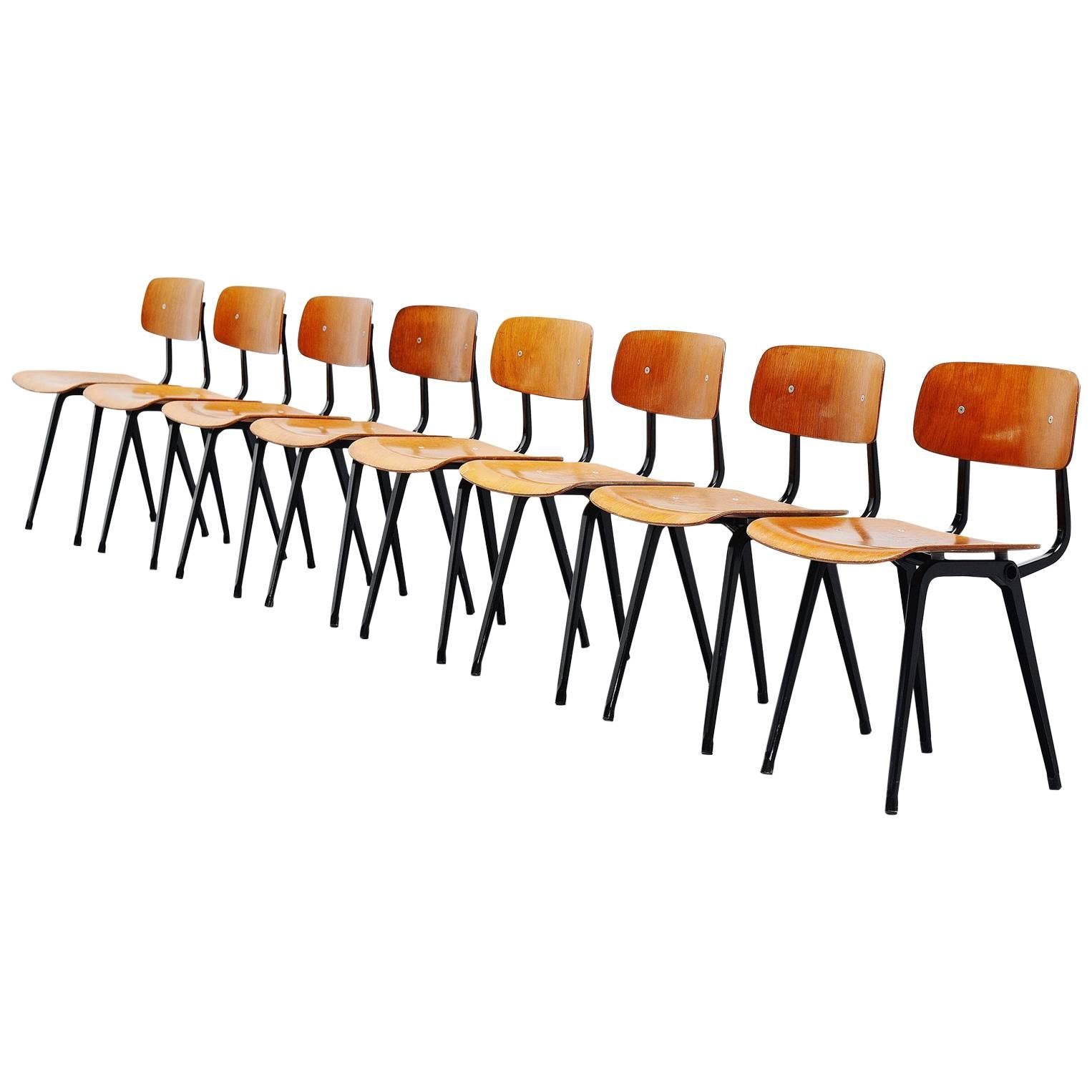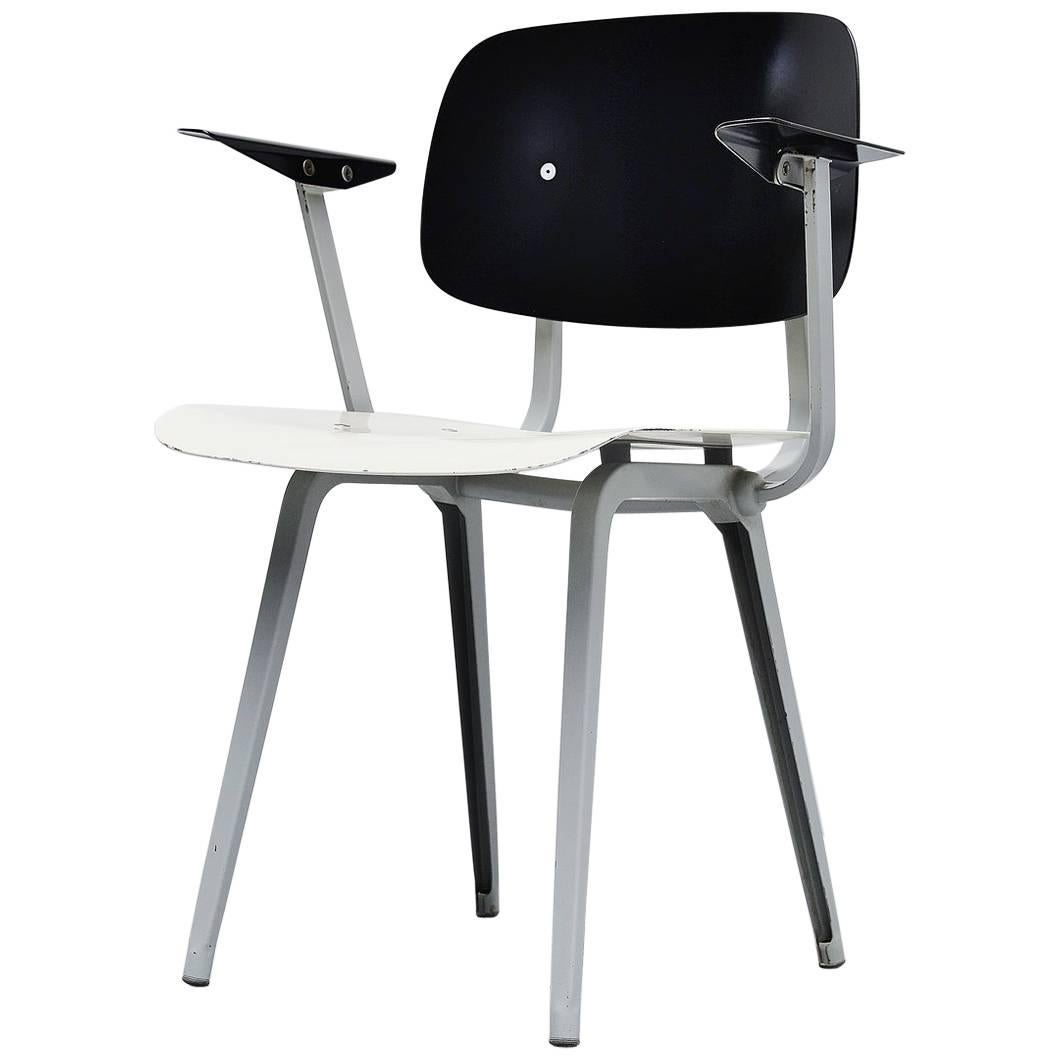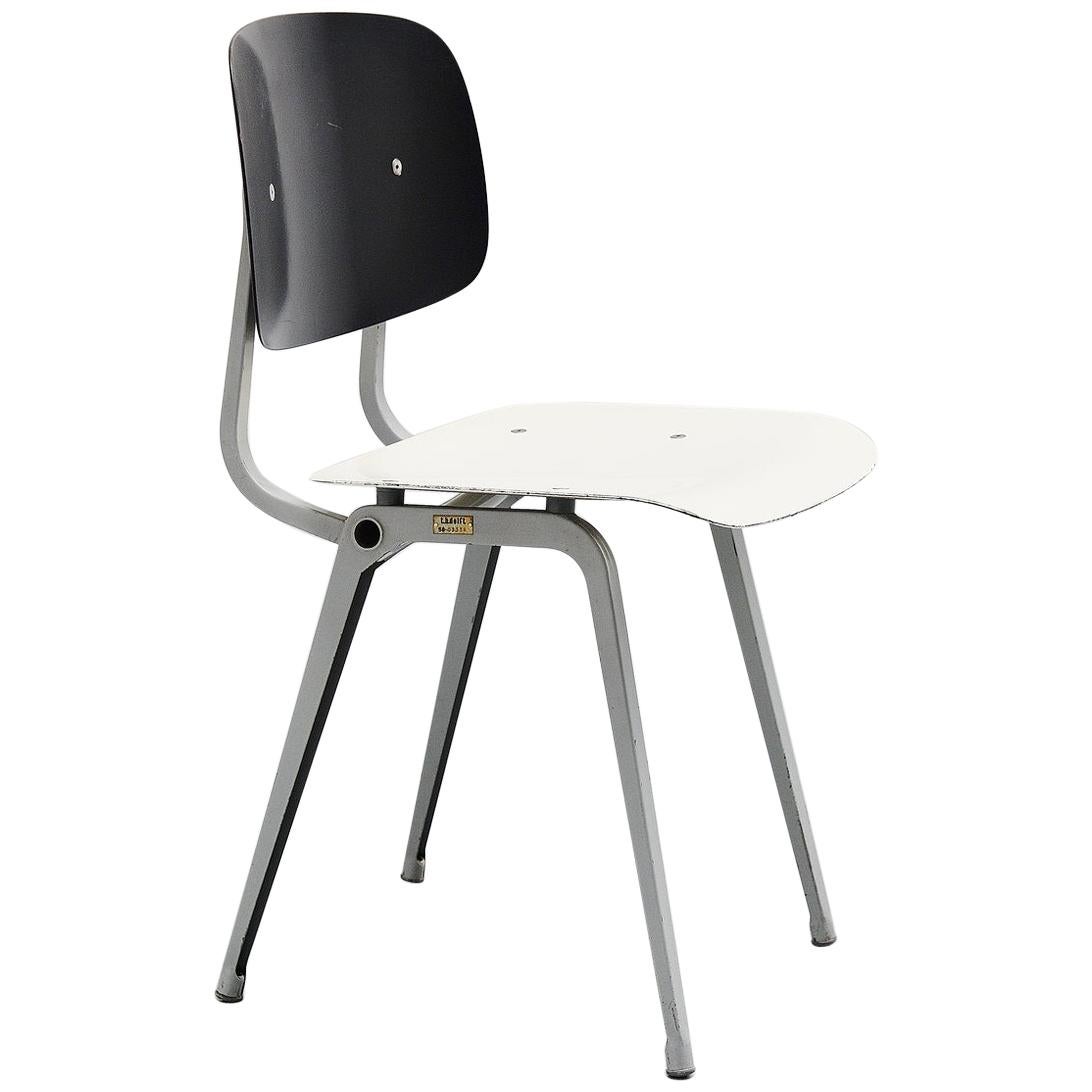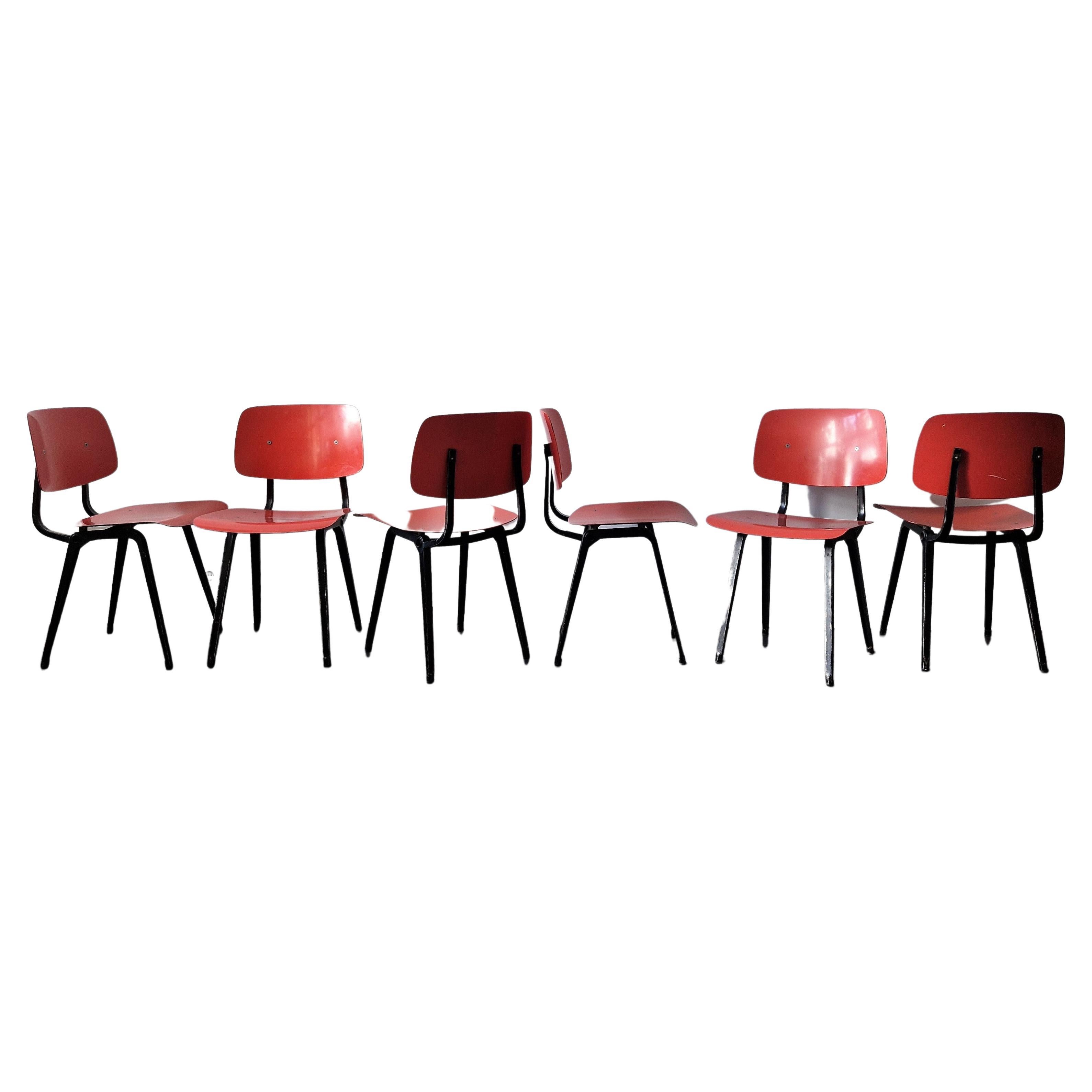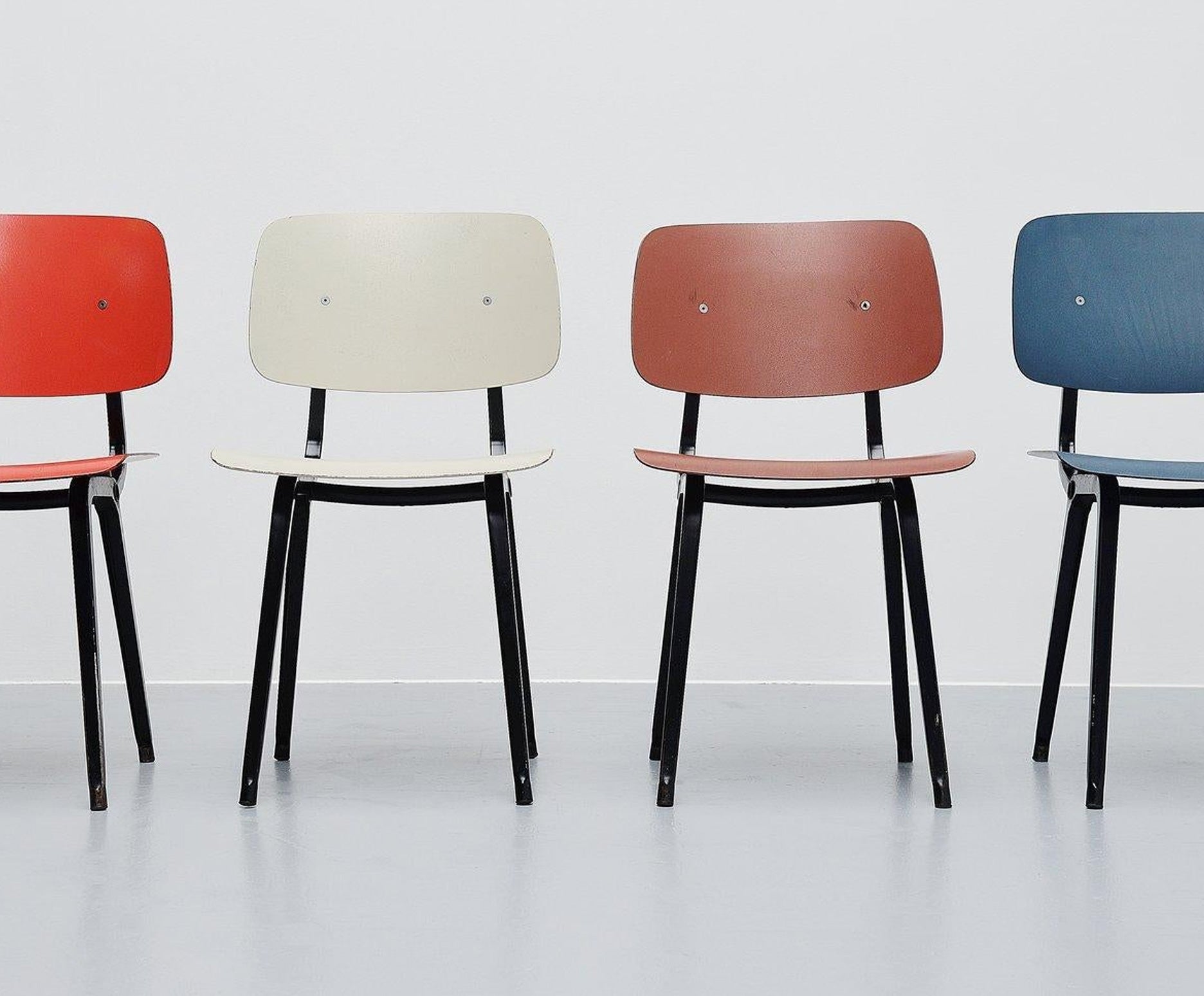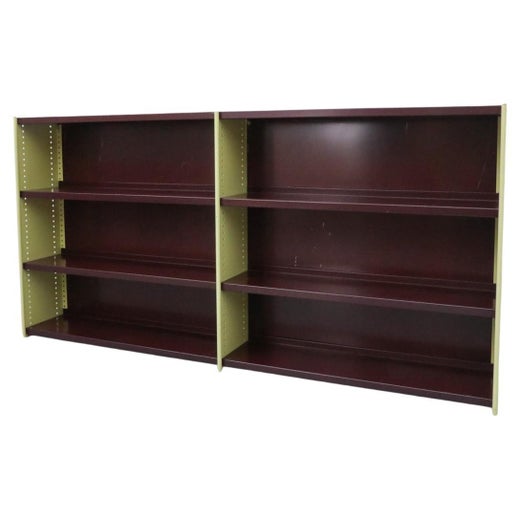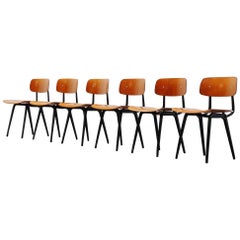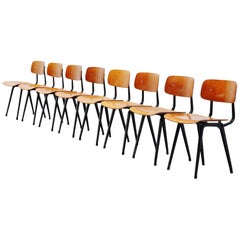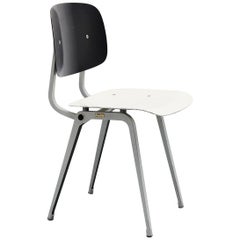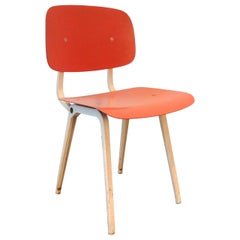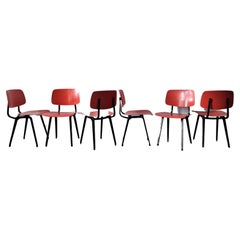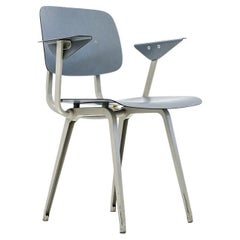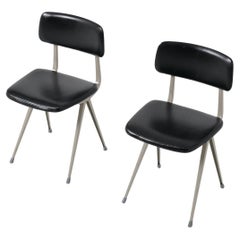Friso Kramer Revolt Folding Chair for Ahrend de Cirkel, 1953
About the Item
- Creator:Friso Kramer (Designer)
- Design:
- Dimensions:Height: 30.71 in (78 cm)Width: 18.12 in (46 cm)Depth: 18.12 in (46 cm)
- Style:Mid-Century Modern (In the Style Of)
- Materials and Techniques:
- Place of Origin:
- Period:
- Date of Manufacture:1953
- Condition:Wear consistent with age and use. Minor losses.
- Seller Location:Roosendaal, NL
- Reference Number:1stDibs: LU93309837553
Revolt Chair
Created by Dutch industrial designer Friso Kramer (1922–2019) in 1953, the lightweight, simple, curved sheet steel and plastic four-legged Revolt chair is among the Netherlands’ most revered pieces of furniture, and yet its author remains relatively unknown. Kramer’s works shaped many different spheres of Dutch life, from mailboxes to streetlights to furniture, and revolutionized postwar design. According to him, “If form does not contribute to function, it has no right to exist.”
Friso Kramer was the son of famous architect Piet Kramer and got his own start studying architecture and interior design at Amsterdam’s Institute of Applied Art. After 1948, Kramer worked as a designer at furniture manufacturer Ahrend de Cirkel and later cofounded the highly influential design studio Total Design. In the 1950s, Kramer became involved in the Stichting Goed Wonen (Good Living Foundation), whose mission was to aid with reconstruction after the war and to improve the general lack of style and materials during this time. It was also during this time that he began designing several metal and plastic chairs, among them the Revolt chair, which became one of the first mass-produced pieces of furniture and a darling of Dutch mid-century modernism.
The Revolt chair was exhibited at the Milan Triennial in 1954. Its construction reflected modern-day research in ergonomics and was widely used in private homes as well as public spaces. Over time, the versatile Revolt chair has become one of Kramer’s most recognizable designs. Following a couple of relaunches, it is still in production today by Royal Ahrend.
Examples of the Revolt chair are in the permanent collection of the Stedelijk Museum in Amsterdam and the Museum Boijmans van Beuningen in Rotterdam, which devoted an exhibition to Kramer’s work in 1991. Kramer’s contribution to postwar design was honored with the title Royal Designer for Industry by the Royal Society of Arts in London in 1979.
Friso Kramer
Through both his bold furniture designs and his teaching and administrative positions within the architecture and design industries, the solution-oriented Friso Kramer helped elevate industrial design to a venerated place in the modernist canon.
While the mid-century years saw no shortage of function-minded modernists, Kramer may have been the most extreme of them. “If form does not contribute to the function, it has no right to exist,” the Dutch designer once said. Born in Amsterdam in 1922 to the pioneering architect Piet Kramer, Friso studied architecture, industrial design, electrical engineering and interior design. He cut his teeth in the studios of architect Jan Piet Kloos and interior designer Frans Paulussen, then, in 1948, went to work as a designer at the steel furniture manufacturer De Cirkel (part of the Ahrend group), where he would design some of his best-known work.
The 1953 Revolt chair, which is among his most celebrated seating and a darling of Dutch mid-century modernism, embodied Kramer’s function-first design; its skeletal, industrial form provides for maximum comfort and ergonomic support with minimal material. He joined forces with Wim Rietveld, son of celebrated Dutch modernist Gerrit Rietveld, for the 1958 Result chair, which married elements of the Revolt with forms from Rietveld’s Pyramid series. Kramer found numerous ways to riff on and perfect his brand of minimalism: The 1960 Resort and Repose armchairs demonstrate how he slightly tweaked the skeletal frames for different postures and uses.
In 1963, Kramer left Ahrend to found Total Design Studio with Wim Crouwel, Benno Wissing and Paul and Dick Schwartz. The firm grouped graphic, industrial and spatial design under one roof with the shared belief in functionalism. Though Total Design Studio is still in business today, Kramer left the company to return to Ahrend in 1971, serving as art director until 1983. Following Kramer’s death in 2019, Ahrend teamed up with Danish design brand HAY to relaunch the Result and Revolt chairs.
Find vintage Friso Kramer chairs, sofas, tables and other furniture on 1stDibs.
- ShippingRetrieving quote...Shipping from: Roosendaal, Netherlands
- Return Policy
More From This Seller
View AllVintage 1960s Dutch Mid-Century Modern Chairs
Metal
Vintage 1960s Dutch Mid-Century Modern Chairs
Metal
Vintage 1950s Dutch Mid-Century Modern Armchairs
Metal
Vintage 1950s Dutch Mid-Century Modern Chairs
Metal
Vintage 1950s Dutch Mid-Century Modern Lounge Chairs
Metal
Vintage 1950s Dutch Mid-Century Modern Chairs
Metal
You May Also Like
Vintage 1950s Dutch Mid-Century Modern Dining Room Chairs
Metal
Vintage 1950s Dutch Mid-Century Modern Dining Room Chairs
Metal
Mid-20th Century Dutch Mid-Century Modern Armchairs
Steel
Vintage 1950s Dutch Mid-Century Modern Chairs
Steel
Mid-20th Century Dutch Industrial Chairs
Metal
Vintage 1960s Dutch Mid-Century Modern Chairs
Metal
